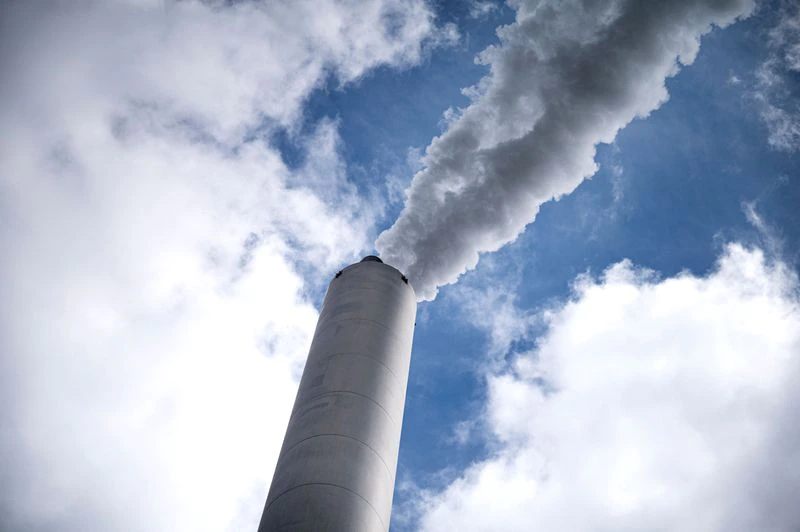New York Daily News Op-Ed Supports Carbon Pricing
The NY Daily News is a famously conservative member of the Murdoch group of newspapers.
It’s past time to price carbon
by Virginia Duffy, Sep. 5, 2021
We are experiencing what feels like an apocalyptic season of extreme weather. Wildfires have burnt through swaths of Siberia, the American West, British Columbia, and the Mediterranean. Unprecedented heat waves have plagued the Northern Hemisphere, leaving ill-prepared communities to suffer. Floods have struck on nearly every continent in recent months, killing nearly 1,000 people worldwide.
Scientists have long warned that climate change would make such a scenario likely, but many are surprised by the speed and intensity with which such a future has arrived. Scientists are also in broad agreement that human activity is driving climate change. Specifically, we are responsible for causing the planet to warm as we emit heat-trapping gasses, such as carbon dioxide, into the atmosphere.
The primary source of greenhouse-gas pollution is the combustion of fossil fuels — oil, gas and coal — to produce energy. The average surface temperature of the Earth has increased by about 1° Celsius since the dawn of the industrial revolution. Although it seems a minute rise, it is enough to drastically affect the delicate balance of atmospheric conditions.
In fact, even if we were to stop emitting carbon dioxide and other greenhouse gasses tomorrow, the Earth’s temperature would continue to rise. It will be years before we witness the full effects of the climate change we have already instigated. Extreme weather events will no longer be extreme, they will be the norm.
In order to prevent an even worse-case scenario, the Intergovernmental Panel on Climate Change recommends we limit global warming to 1.5° Celsius. Nearly 200 nations pledged allegiance to this goal by signing the Paris Agreement in 2015. President Biden recently renewed America’s commitment, vowing the country would cut emissions in half by 2030 (as compared to 2005 levels).
Despite such promises, the concentration of greenhouse gasses in the atmosphere is still on the rise. Economists and climate experts agree that an aggressive price on carbon is beneficial to any attempt at reducing emissions quickly and sufficiently. Such a policy incentivizes marginal emissions abatement, spurs clean energy innovation and amplifies the effects of other climate strategies such as infrastructure remodeling and energy storage improvement.

Carbon pricing comes in two main varieties. A cap-and-trade system sets a cap on total emissions in a given region or sector and allows participating polluters to trade emission credits. A carbon tax is a direct, per-ton price on carbon dioxide emissions. Both approaches allow firms the freedom to reduce emissions as they see fit, and both signal a transition towards a low-carbon future. Moreover, carbon pricing weakens consumer demand for carbon-intensive goods and services.
The time is ripe for implementing a price on carbon in the United States. Congress is now in the process of budget reconciliation, an annual occurrence that allows certain legislation to be passed with a simple majority. Both the House and the Senate have tentatively agreed to a $3.5 trillion budget, and are now discussing what is to be included in the final bill. A number of climate-related policies are being considered, and it is imperative carbon pricing be among them.
A carbon fee and dividend policy, as prescribed by the Energy Innovation and Carbon Dividend Act (H.R. 2307), is a transparent and politically viable option. Carbon dioxide emissions would be priced at $15 per ton and subjected to a $10 annual increase. All revenues would be returned to Americans in equal dividends, and U.S. business interests would be protected by a carbon border adjustment.
Modeling carried out by think tank Resources for the Future has predicted that such a plan would reduce national emissions by roughly 50% in the next decade, and set us on a path to reach carbon neutrality by 2050. Moreover, the dividend program would ensure the least wealthy 60% of Americans come out financially unscathed as dividend payments would match or exceed increased expenditures. The policy is revenue neutral yet progressive, and above all effective.
If you care for a future free from the persistent threat of wildfires, floods and heatwaves, reach out to your senators and representatives today, asking for a price on carbon to be included in this year’s budget reconciliation package.
Duffy is a resident of Brooklyn and a volunteer with Citizens’ Climate Lobby.

